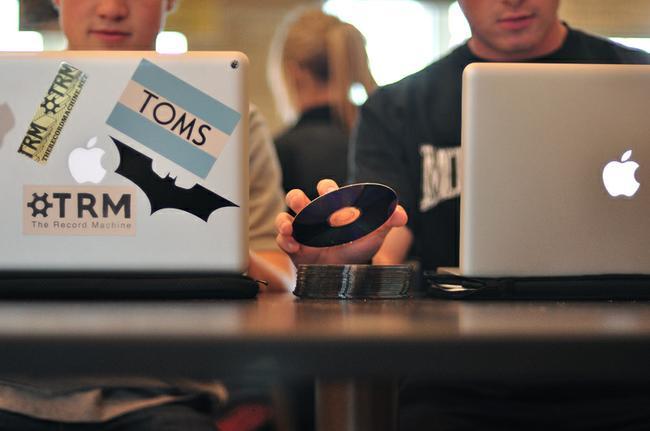Because it’s a quick and easy way to obtain the newest music and movies at zero cost, illegally downloading and sharing files has become a commonly accepted habit across all age groups, especially among college students hoping to save a dime.
With downloading programs such as LimeWire, FrostWire and MediaFire easily accessible to those surfing the web, the consequences of engaging in the illegal activity often go forgotten.
The small-scale habit can carry major repercussions for the music and film industry. Global music piracy causes $12.5 billion in economic losses and 71,060 United States job losses every year, according to the Recording Industry Association of America. The loss prompted the passage of the Digital Millennium Copyright Act of 1998.
The federal law protects the author of intellectual works, giving only the author or the author’s assignees the ability to copy, distribute, create, perform and exhibit protected works. The passage prompted a parallel crackdown against illegal downloading at MU.
“At that time, our department received numerous subpoenas from the music recording industry, where people had downloaded thousands and thousands of songs and were making them available to everybody without paying for them,” MU Police Department spokesman Scott Richardson said. “It’s why most of the file sharing stuff was shut down on campus, due to the numerous subpoenas that we received from the music recording industry.”
The new restrictions cut off students’ ability to download or share files illegally on campus in addition to imposing stricter punishments if caught. IP addresses with a large number of downloads will have the networking port cut and require additional training and a $200 administrative fee.
“We block the network to prevent those types of things,” Division of Information Technology Director Terry Robb said. “There are sites out there that share music, and we know who they are, so we block them from being able to download into our network. It’s pretty much stifled the problem. Now there may be some file sharing between people on campus, obviously, but off-campus to on-campus, we have really taken it down to almost zero.”
But students don’t always perceive it as a problem.
“I really don’t think it’s that big of a deal, personally, because I feel like artists already make so much money off their music anyways with record deals and everything like that,” sophomore Tehra Zotos said. “What are a couple more songs? I see how campus is trying to stop it because it is technically a crime, but I feel like there are far worse things that people could do than download music illegally.”
In addition, the activity carries hefty civil and criminal penalties.
The minimum fine is $750 per downloaded file, while criminal penalties can reach up to $250,000 in fines and five years in prison.
“The artist is entitled to royalties for his work, so I think illegally downloading is stealing,” Robb said. “I think as more and more stories come out, students and other people will realize that the music is the property of the artists and you must pay them for the use of their property. I think the more we see in the news media about the fines levied, the more the word will get out.”








